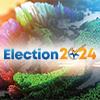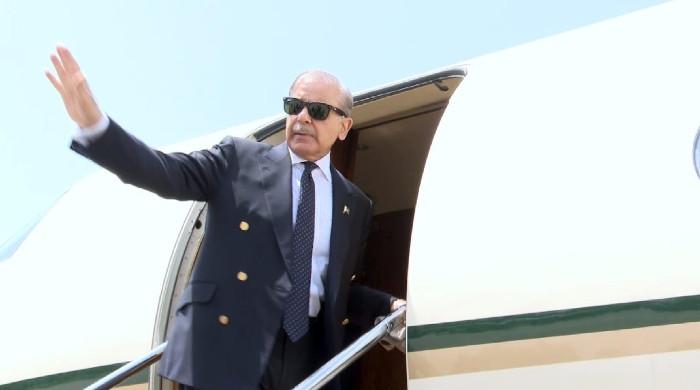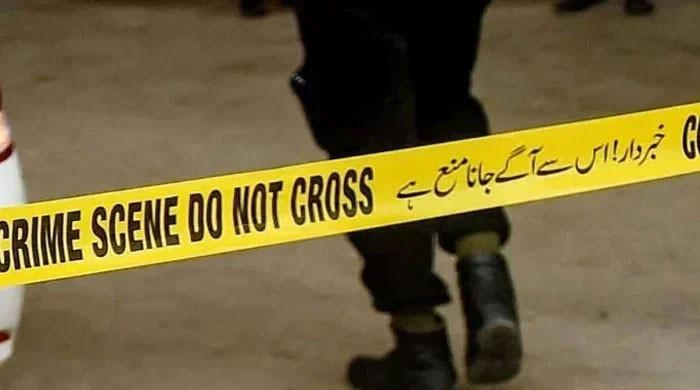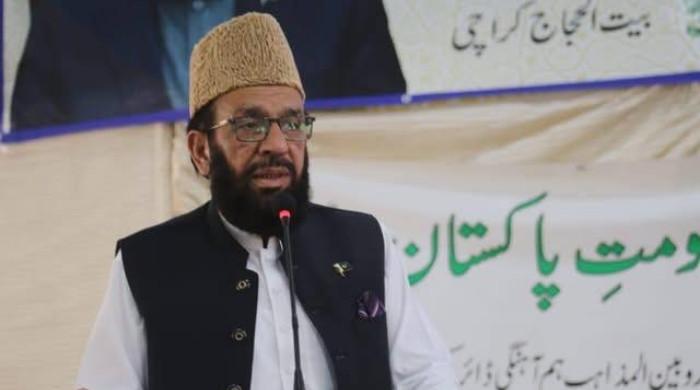Of major political parties, PTI leads in awarding tickets to women for polls
28 PTI-backed independent women candidates are contesting for NA seats, while 25 for provincial assembly seats
February 02, 2024
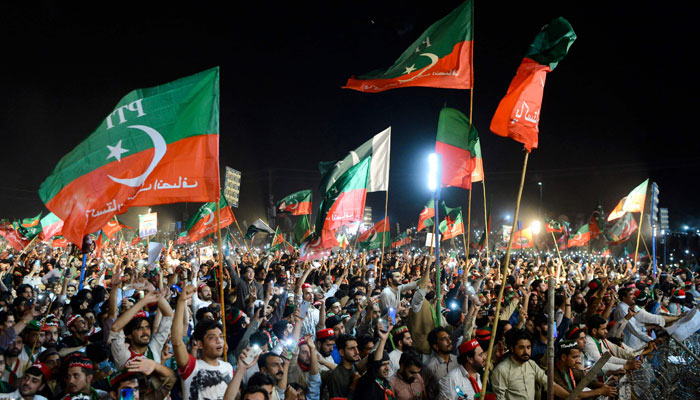
Of the major political parties in Pakistan, the Pakistan Tehreek-e-Insaf (PTI) has fielded the most number of women candidates in the upcoming polls.
Former prime minister Imran Khan’s political party, the PTI, has awarded party tickets to 53 women candidates for the national and provincial constituencies, out of the total 754 candidates it has fielded across the country.
Therefore, 7% of the politicians, in the fray with PTI’s support, are female.
Earlier this month, the Supreme Court of Pakistan stripped the PTI of its iconic electoral symbol, the cricket bat. After which, the party’s candidates will be contesting the parliamentary election as independents, with different election symbols.
Of the 53 women contesting, with PTI’s backing, 28 are contesting for the National Assembly constituencies, while 25 for provincial seats.
The newly-formed Istehkam-e-Pakistan Party has awarded tickets to 7 women, which means 7.2% of its total candidates are female, and the Muttahida Qaumi Movement Pakistan, which alloted tickets to 13 women, therefore 6.7% of its total.
But other major political parties have fallen short of issuing tickets to even 5% of their candidates.
For Thursday's election, the Pakistan Peoples Party (PPP) has awarded party tickets to 35 women — 11 women on National Assembly seats and 24 on provincial seats, meaning 4.5% of its total 779 candidates are female.
While the Pakistan Muslim League-Nawaz, led by former prime minister Nawaz Sharif, has issued party tickets to only 28 women, 13 on National Assembly seats and 15 on provincial. Therefore, only 4.2% of the 668 candidates fielded by the party are women.
And the far-right Tehreek-e-Labbaik Pakistan has awarded tickets to the least number of women, 11, which makes up 1.5% of its total candidates.
However, a large number of women (513) are contesting as independents from across the country for provincial and National Assembly seats, out of the total 11,165 independents in the race.
Majority of these women, therefore 203, are in the fray for the Punjab Assembly seats.
Overall, out of over 17,000 candidates in the battle for the February 8 election, only 4.7%, therefore 839, are female, even though women make up around 49% of the population of Pakistan, as per the 2017 census.
Pakistan’s electoral laws make it mandatory for political parties to allot 5% of their tickets to women on contestable seats.
However, the Election Commission of Pakistan explained that the law was misunderstood.
A senior official told Geo.tv that the 5% threshold was determined after taking into account women fielded by a political party for all levels of the government – therefore parliamentary and local government polls.
“The [5%] is calculated on the basis of total tickets [allotted] by a political party to women for National and provincial assemblies and local government and senate,” said Nighat Siddique, the additional director general gender at the ECP.
| Political Party | National Assembly | Punjab Assembly | Sindh Assembly | Khyber Pakhtunkhwa Assembly | Balochistan Assembly | Total women candidates | Total Candidates | Percentage of total tickets to women |
| Pakistan Tehreek-e-Insaf-backed independents | 28 | 16 | 5 | 2 | 2 | 53 | 754 | 7% |
| Pakistan Peoples Party | 11 | 11 | 7 | 5 | 1 | 35 | 779 | 4.5% |
| Pakistan Muslim League-N | 13 | 3 | 6 | 5 | 1 | 28 | 668 | 4.2% |
| Awami National Party | 2 | 1 | 0 | 5 | 0 | 8 | 203 | 3.9% |
| Jamaat-e-Islami | 9 | 8 | 6 | 4 | 2 | 29 | 751 | 3.9% |
| Muttahida Qaumi Movement Pakistan | 9 | 0 | 4 | 0 | 0 | 13 | 193 | 6.7% |
| Tehreek-e-Labbaik | 2 | 1 | 4 | 3 | 1 | 11 | 706 | 1.5% |
| Istehkam-e-Pakistan Party | 4 | 2 | 1 | 0 | 0 | 7 | 97 | 7.2% |
